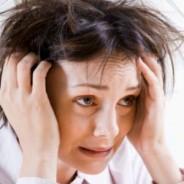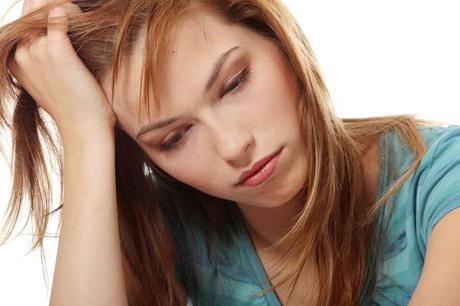
Anxiety is feeling disturbed in otherwise challenging circumstances. You get butterflies in your stomach while you are anxious signaling the menace have taken over your body and mind. This situation could be your waiting for your exam results or your next promotion in your job is underway or any other that makes you loose your peace of mind and it fell into the trap of circling thoughts.
Anxiety is good when it is of short duration like a student preparing hard for the exams to top the class or a sports person training hard to win the championship. It actually enhances the performance. The problem occurs when it becomes persistent and starts to interfere the daily life schedules and routines. This type of disorder is termed as the anxiety disorder. Excessive anxiety is often associated with other mental health problems such as depression.
Types of anxiety disorder
Phobias
A phobia is an out of proportion fear of an expected dangerous situation. When it starts to interfere with the normal life routine then it is considered harmful and need treatment. Common phobias include fear of height, water, darkness, blood etc
Panic disorder
There might be some reason or no reason to develop the panic attacks that usually lasts for about 10 minutes but in some cases they may last longer. This is termed as panic disorder.
Obsessive-compulsive disorder
There might be the repeated obsessions like any situation and compulsions like actions to cancel the obsessions in your persona and this is termed as OCD.
Post-traumatic stress disorder
Post traumatic stress disorder occurs after some traumatic event in your life. In this the patient can face heightened anxiety levels, recurring thoughts, memories, images, dreams or distressing ‘flashbacks’ of the trauma. PTSD can occur even after many years of the event.
Generalised anxiety disorder
Anxiety can be a long-term disorder where you feel worried most of the time about things that might go wrong. This is called generalised anxiety disorder (GAD). If you have GAD, you may also have panic attacks and some phobias.
Symptoms
Anxiety disorders can cause both psychological and physical symptoms.
If you have an anxiety disorder, your main symptom will be feeling anxious. However, this can lead to other psychological symptoms such as:
- sleeping difficulties (insomnia)
- feeling tired
- being irritable or quick to get angry
- being unable to concentrate
- a fear that you’re ‘going mad’
- feeling out of control of your actions, or detached from your surroundings
When you’re anxious, you may also have a range of physical symptoms. This is caused by the release of the hormone adrenaline – your body’s so-called ‘fight or flight’ response. Physical symptoms of anxiety include:
- discomfort in your abdomen (tummy)
- diarrhoea
- dry mouth
- rapid heartbeat or palpitations
- tightness or pain in your chest
- shortness of breath
- dizziness
- needing to urinate more often than usual
- difficulty swallowing
- shaking
- These symptoms may be caused by problems other than anxiety disorders. If you have any of these symptoms, see your doctor for advice.
Causes
There are many different causes of anxiety. It may not be clear why you have anxiety, but you may be more likely to develop an anxiety disorder if you:
- In some cases ,certain Inborn fears lead to anxiety
- Individuals with low self esteem and poor coping skills are more likely to fall prey to anxiety disorder.
- Lacking the right upbringing and lack social support system leads to germination of the anxiety disorder among the individuals.
- Genetical factor and family history of anxiety disorder can lead to development of the anxiety disorder in the individual
- Researchers have also shown that changes in activity in certain areas of the brain are involved in anxiety.
- go through a stressful, life-changing event such as a bereavement, or witness something traumatic
- have another mental health condition, such as depression or alcohol dependence
- have a physical illness, such as a thyroid disorder
- take illegal substances such as amphetamines, LSD and ecstasy
- are withdrawing from long-term use of some medicines, such as tranquillisers
Some people seem to be born with a tendency to be more anxious than others. This means anxiety disorders may be genetically inherited. Equally, people who are not naturally anxious can become so if they are put under intense pressure.
Diagnosis
A person who thinks they might have an anxiety disorder should see a doctor. A doctor may perform some tests to make sure that the anxiety does not have a physical cause and will ask questions about the anxiety to determine whether it is an anxiety disorder or may be related to a type of depression.
Treatment
Self-help
There are various lifestyle changes you can make to help reduce feelings of anxiety. For example, taking part in regular physical activity, avoiding stimulants such as cigarettes and alcohol and eating a healthy diet can help to improve your symptoms.

Anxiety Disorder
Talking therapies
- Contacting and talking to other people who have anxiety disorders through charities and patient groups can be a good source of support and advice. Your GP may be able to advise you about services available in your area.
- Talking through your problems with a counselor may help you to deal better with your anxiety. Counseling may be particularly helpful if you have a panic disorder, social phobia or GAD, especially in the short term, but it isn’t suitable for everyone.
- Cognitive behavioral therapy (CBT) is a short-term psychological treatment. CBT helps to challenge negative thoughts, feelings and behavior, and is particularly suitable if you have problems such as phobias or panic attacks.
Medicines
There are a number of different types of medicines that can be used to treat anxiety disorders. Your GP may prescribe you one of the following medicines, depending on how much your anxiety affects you.
- Benzodiazepines may be used for the short-term relief of severe anxiety. They aren’t prescribed for long-term use because of the risk of addiction.
- Antidepressants can be used on their own for chronic anxiety or in combination with a benzodiazepine.
- Beta-blockers may help to reduce some of your physical symptoms, such as rapid heartbeats or palpitations and shaking. However, they don’t help with the psychological symptoms of anxiety.
Always ask your doctor for advice, and read the patient information leaflet that comes with your medicine.
Complementary therapies
Some relaxation techniques such as meditation and low impact yoga or tai chi exercises may help you to deal with your anxiety. However, there isn’t enough research on these types of therapy to tell if they are effective or not. You should always speak with your GP before you start any complementary therapy courses or treatments
Conclusion
Anxiety disorders are the most common of all mental disorders. About 1 out of every 4 adults has an anxiety disorder sometime in their life and about 1 out of every 10 people currently has an anxiety disorder. They are more common in women and can affect children and adults.
